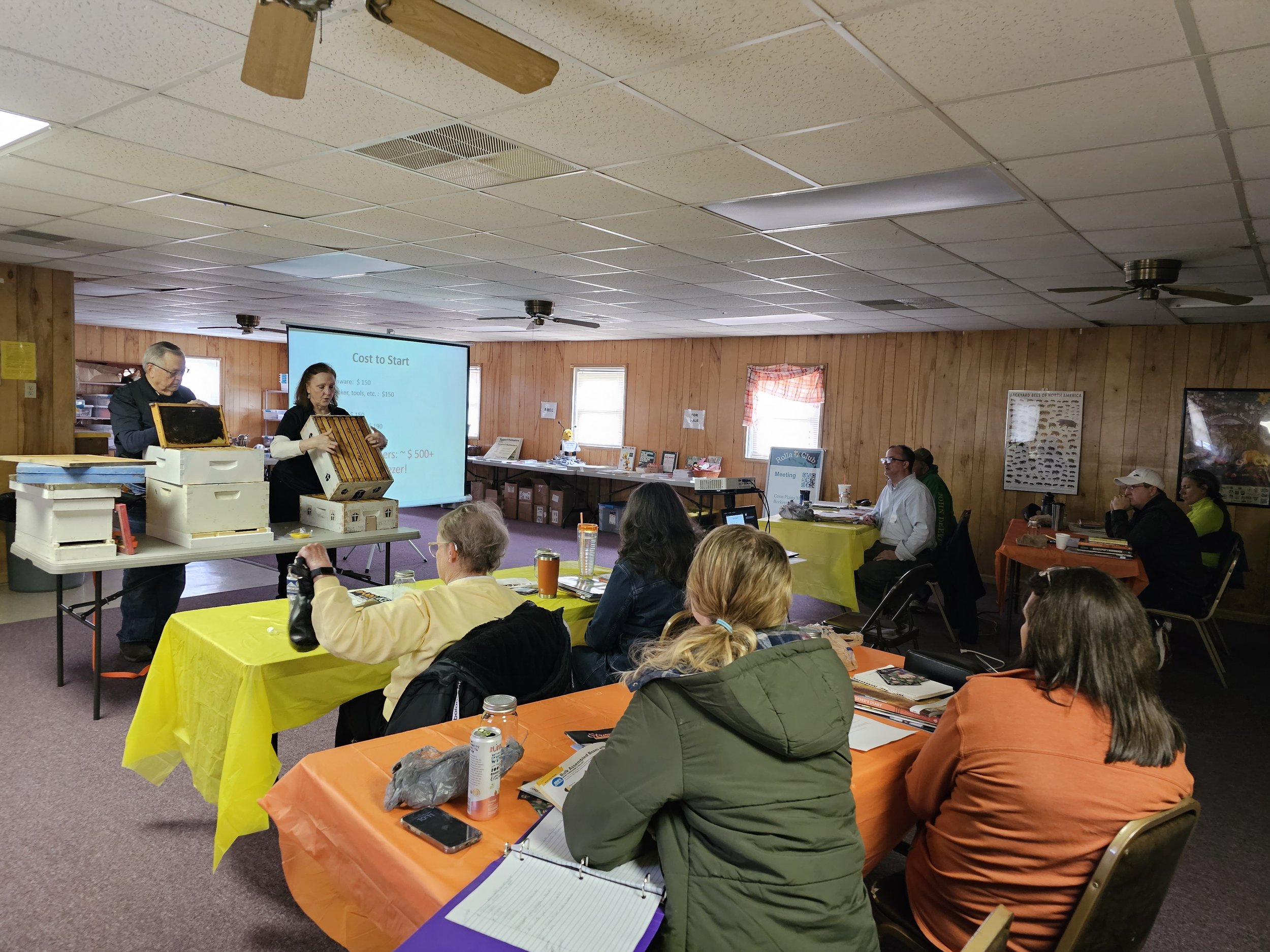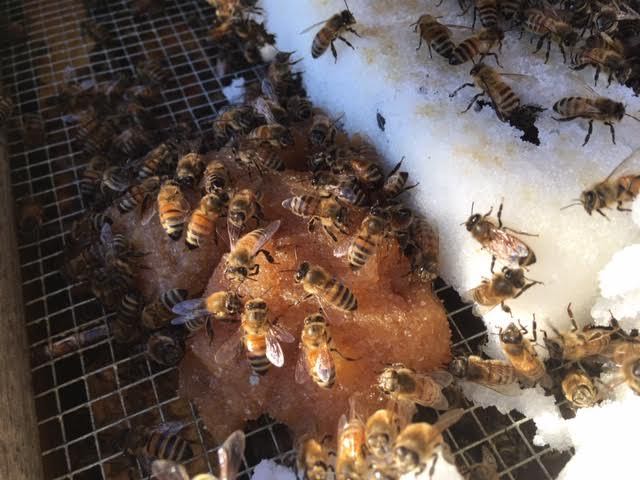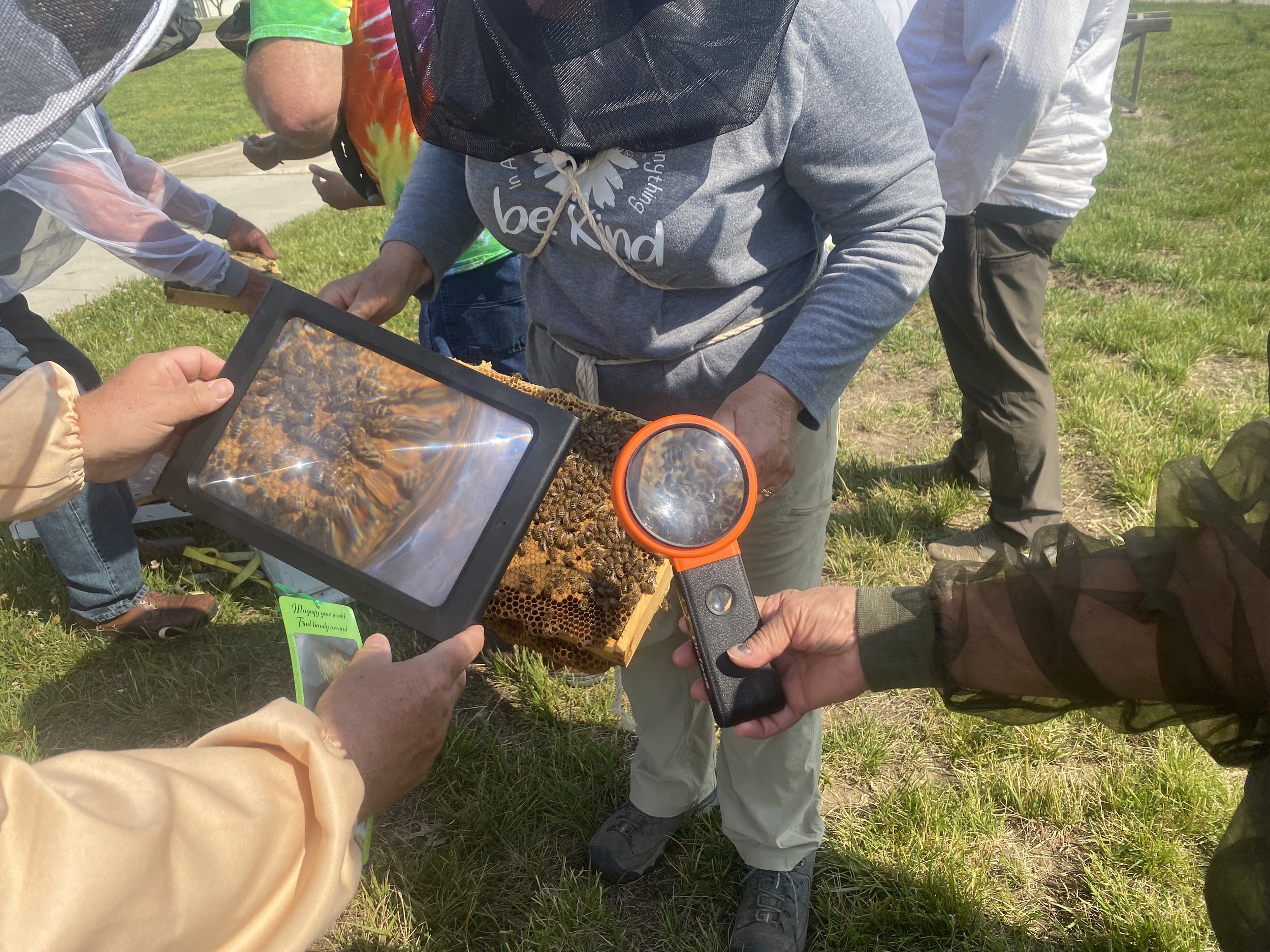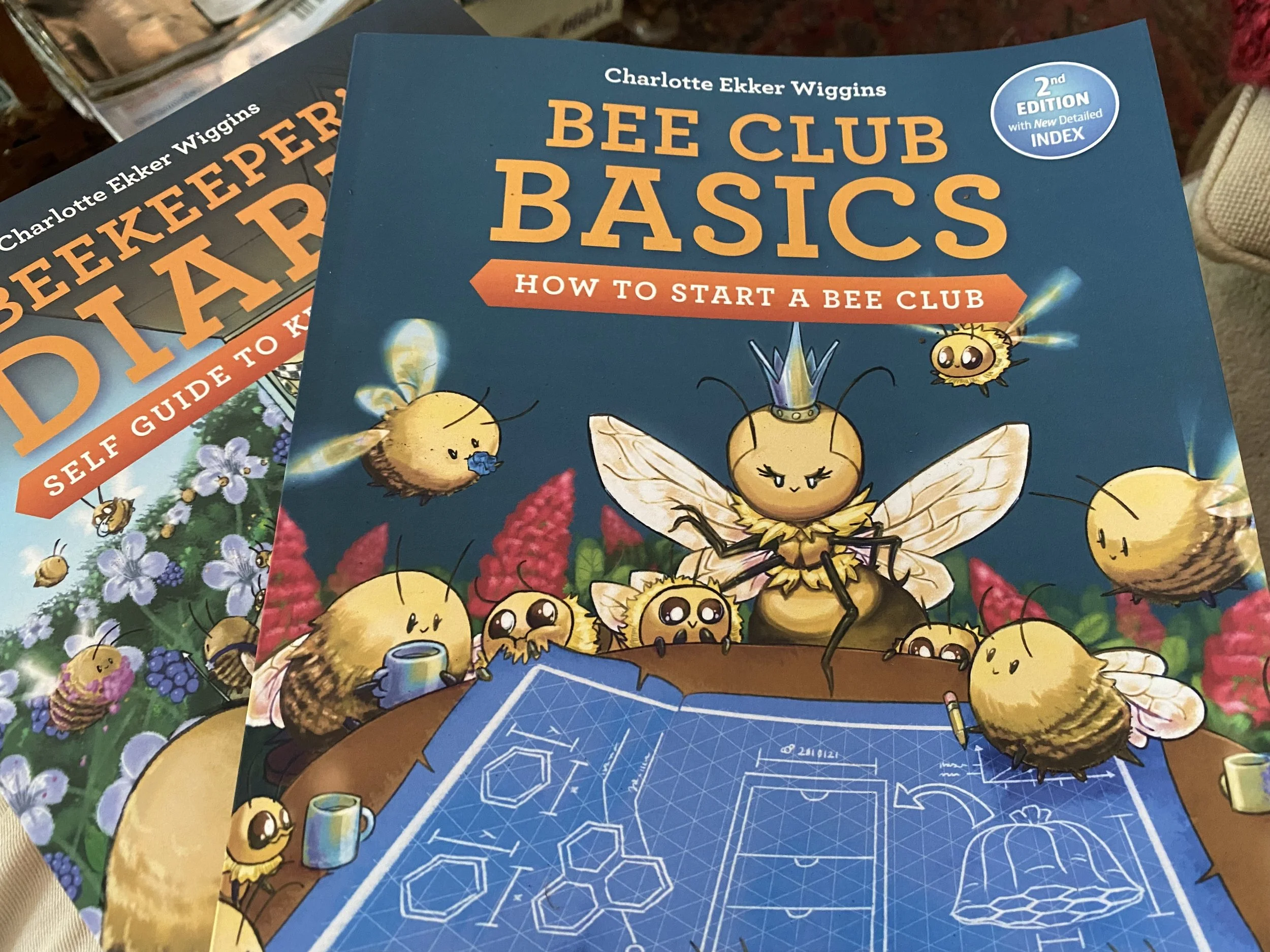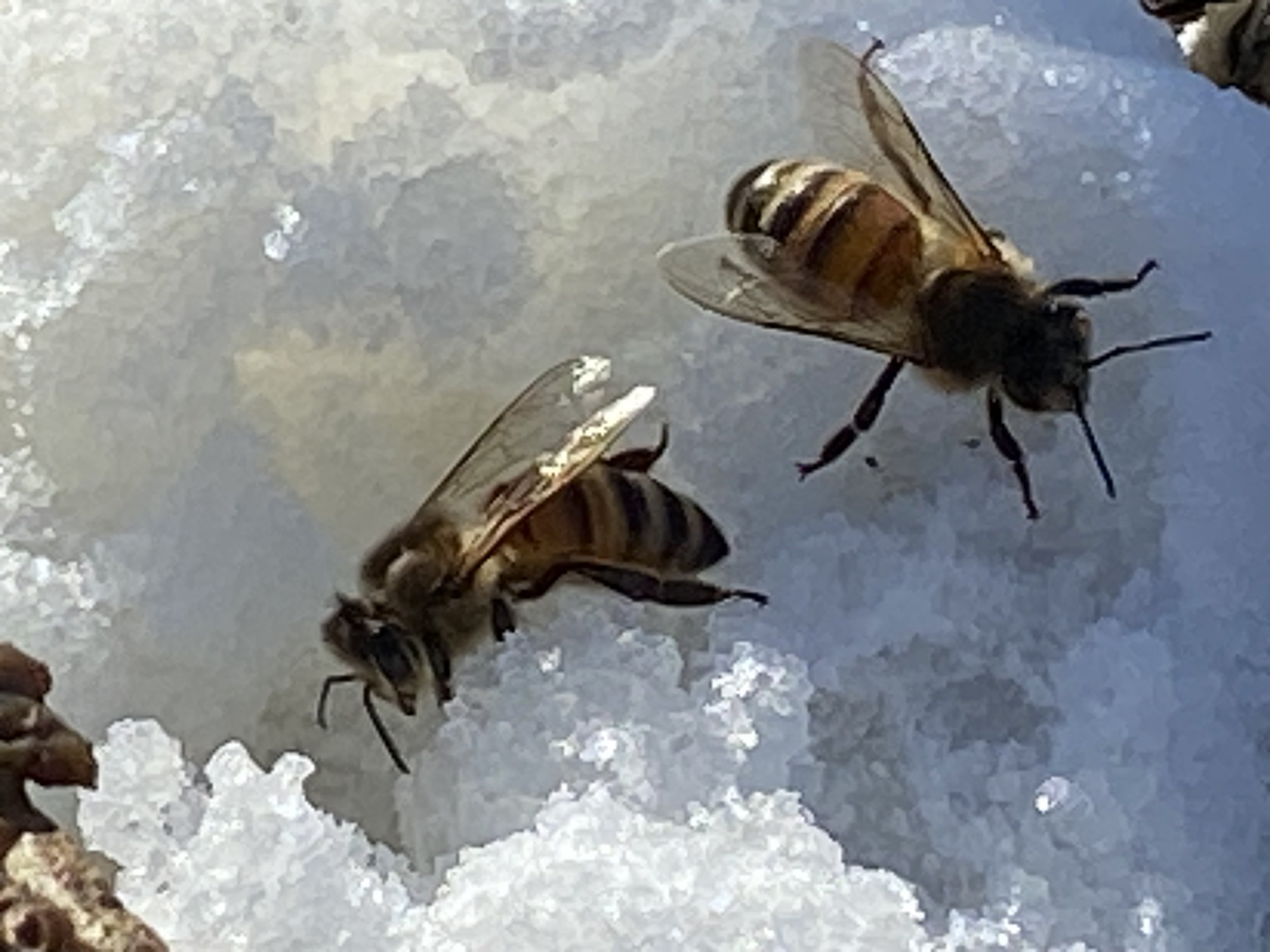How to Get Comfortable with Bees
/beekeepers have bee suits, gloves, a smoker when they can keep them lit and kitchen towels to work with bees. (charlotte ekker wiggins photo)
How to Get Comfortable with Bees
It’s almost like magic one of our club’s new beekeepers noted watching me work bees without gloves. The truth is, once one gets over the fear of bees, most everyone can do the same.
But first, it’s important to get used to the bees. Here are the top 10 things a new beekeeper can do to get used to being around bees:
Observe from a Distance: Spend time near the hive, observing the bees from a safe distance. Place a bench close by so you’re tempted to observe whenever you can. Watch their flight patterns, how they interact with each other, and how they enter and exit the hive.
Wear Protective Gear: Always wear appropriate protective clothing, including a beekeeping suit, gloves, and a veil, to minimize the risk of stings. Feeling protected can greatly boost your confidence.
Attend Beekeeping Workshops or Classes: Join beekeeping workshops and classes in your area. This hands-on experience under the guidance of experienced beekeepers can provide invaluable insights and help build confidence.
Start with Calm Bees: Work with calm bee breeds or colonies known for their gentle behavior, especially when starting out. This can help ease anxiety and build confidence in handling bees.
Work during Calm Weather: Choose to work with the bees during calm, sunny weather when they are less likely to be agitated. Avoid working with bees during windy, rainy, or extremely hot conditions.
Move Slowly and Deliberately: Bees are sensitive to sudden movements and vibrations. Move slowly and deliberately when working around the hive to avoid startling them.
Listen to the Bees: Pay attention to the sounds the bees make. The buzz of a contented hive is different from the buzz of an agitated hive. Learning to differentiate these sounds can help you gauge the mood of the bees.
Practice Patience: Beekeeping requires patience. Take your time when inspecting the hive, handling frames, or performing any task related to beekeeping. Rushing can lead to mistakes and agitate the bees.
Start with Simple Tasks: Begin with simple tasks such as hive inspections, feeding, and adding supers. As you become more comfortable, you can gradually take on more complex tasks such as splitting hives or harvesting honey.
Learn to Use Kitchen Towels. Many beekeepers depend on a smoker to keep their bees busy. I prefer to drape kitchen towels over my colonies, especially when they are small. The towels keep them covered so they don’t notice a disturbance.
By following these steps and gaining hands-on experience, new beekeepers can gradually develop confidence working with their bees. Patience, observation, and respect for the bees are key principles in beekeeping.
For more beekeeping, gardening, cooking and easy home decor tips, subscribe to Garden Notes.
Charlotte



